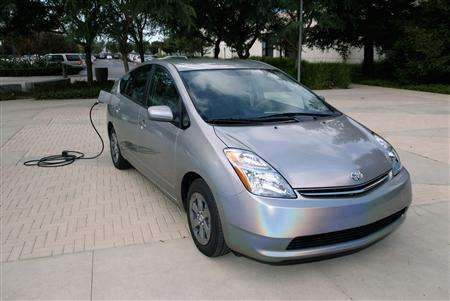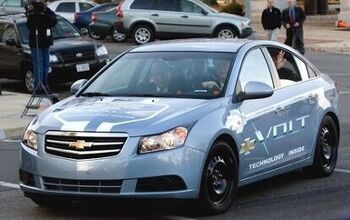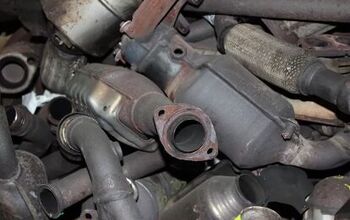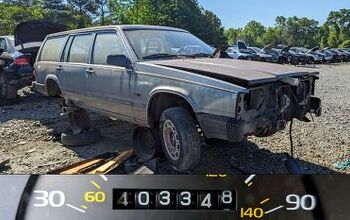Volt Birth Watch 21: Toyota Promises PHEV by 2010
The heat is on the Chevrolet Volt's yes/no/yes/no/maybe 2010 timeline. Bloomberg reports that Toyota has reversed course, set aside their publicly declared antipathy to lithium-ion batteries and announced their intention to have a plug-in hybrid electric vehicles (PHEV) by, coincidentally enough, the Volt's 2010 deadline. "The company will provide a significant number of plug-in hybrids to global fleet customers," Bloomberg revealed. "With a large percentage coming to the U.S., President Katsuaki Watanabe said at the Detroit auto show yesterday, without elaborating. The cars will help Toyota meet new U.S. fuel-economy rules early, he said." Uh, isn't that second bit considered elaboration? Still, point taken. While GM execs Luzt and Wagoner have been shooting their mouths off about the Volt in a consistently contradictory fashion, Watanabe simply says "we're going to do it" and then, if past history is a guide, does it. "You combine Toyota's experience with nickel metal, the lithium expertise for Panasonic and lithium research from Toyota, definitely they are the strongest player,'' said Menahem Anderman, president of the Advanced Automotive Batteries consulting firm.
More by Robert Farago


































Comments
Join the conversation
Redbarchetta: Yep. It's expensive and voids the warranty but it's available today from at least two third parties (HyMotion and... I forget the other). By the way, a few paragraphs down, Watanabe says they'll have diesels here for the Tundra and Sequoia "in the near future." Considering that their PHEV prototypes for the show were unknown until Sunday, "the near future" could be yet this month.
Now it's getting real interesting.
Hmmm I wonder between GM and Toyota which company is most likely to deliver on its promised delivery of product and which one is most likely to fail?